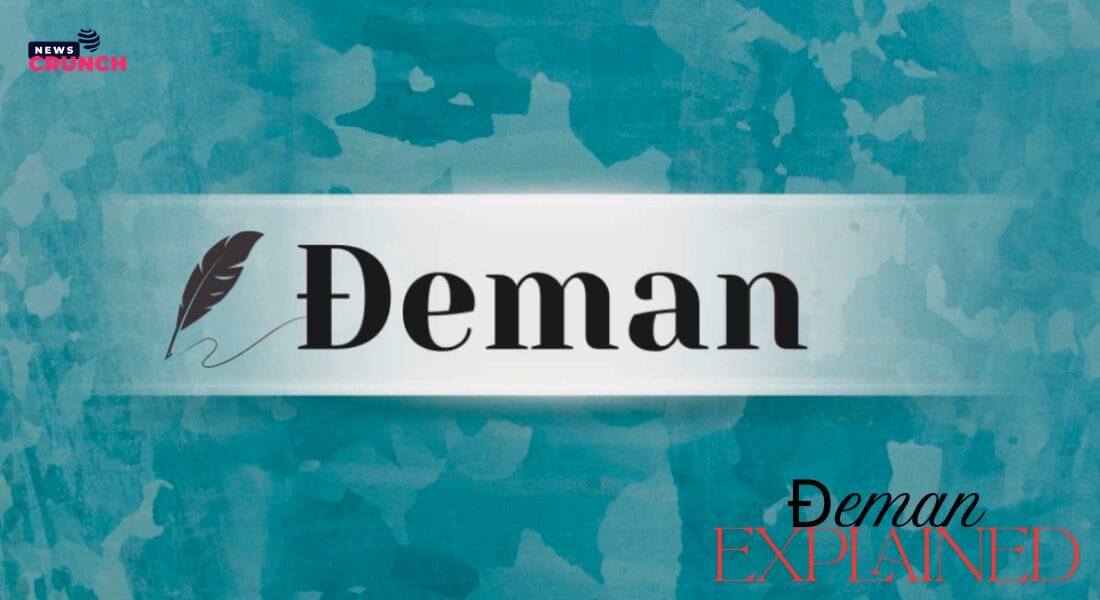
Introduction: What Is Đeman?
The word Đeman has long carried a certain mystique. Ask ten people what it means, and you may get ten different answers. In everyday conversation, it may be used to describe something elusive, mysterious, or even slightly unsettling. Yet historians and linguists argue that Đeman is not just a word it’s a cultural artifact, a symbol of how language preserves centuries of shared memory.
As folklore researcher Ivana Marković from the University of Belgrade once said, “Words like Đeman are time capsules; they tell us not only about language but about the people who used them.”
The Origins and Etymology of Đeman
The origins of Đeman can be traced back to Slavic linguistic roots, though the exact etymology is debated. Some scholars connect it to Old Serbian terms used for describing shadows or hidden forces. Others link it to Ottoman influences during the Balkans’ centuries of cultural exchanges.
A 2018 paper in the Journal of Balkan Linguistics suggests Đeman derived from a word meaning “veil” or “covering,” which explains why it became associated with mystery and the unseen. This dual heritage makes it not only a linguistic curiosity but also a cultural bridge between Eastern and Western traditions.
The Deeper Meaning of Đeman
At its core, Đeman represents the tension between the visible and the invisible. Anthropologist Dr. Jelena Petrović describes it as “a word that fills the silence between the known and the unknown.” In village traditions, it often symbolized forces people could sense but not see emotions, spirits, or hidden truths.
In modern psychology, this resonates with Carl Jung’s idea of the “shadow self,” the unacknowledged part of our personality. Some therapists in Serbia even use the word Đeman as a metaphor when helping patients confront fears that are intangible yet powerful.
Cultural and Social Significance
For centuries, Đeman has appeared in songs, oral storytelling, and even children’s games. In rural communities, grandmothers would warn children about “Đeman nights,” when wandering too far from home was said to bring bad luck. These warnings were not only protective but also a way of passing cultural values from one generation to another.
According to ethnographer Miloš Stojanović, such stories helped communities deal with uncertainty: “Đeman was not only a word for danger but also a way of naming fear, and in naming it, people gained control over it.”
Đeman in Folklore, Literature, and Art
The artistic record of Đeman is rich. Serbian epic poetry often uses the term to describe a force lurking behind the hero’s journey. vo Andrić, the Nobel Prize–winning author, used Đeman-like imagery in his works to capture the heavy presence of history on individuals.
Contemporary artist Marija Ristić also integrates “Đeman figures” into her canvases. Speaking to Politika in 2021, she explained: “I paint Đeman as a silhouette, half-present and half-absent.” It is a metaphor for memory itself always with us, but never fully visible.”
Symbolism and Psychological Interpretations
Symbolically, Đeman represents ambiguity the space between fear and fascination. Psychologists argue that words like Đeman help cultures give shape to the abstract. In therapy contexts, it’s been compared to the archetype of “the unknown traveler” or “the dark forest” in fairy tales.
One case often cited in cultural psychology is a Belgrade high school project where students were asked to paint what Đeman meant to them. The results ranged from storm clouds to broken mirrors, showing how deeply personal yet widely relatable the symbol has become.
Common Misconceptions About Đeman
Many outsiders assume Đeman refers only to something evil or demonic. In reality, its meaning is much broader. Linguist Tamara Vuković clarifies: “Đeman is not inherently negative; it is ambiguous. It can be protective, cautionary, or even inspiring, depending on context.”
For example, in certain wedding songs, Đeman is invoked not as a curse but as a blessing to guard the couple from envy. These nuances are often lost in translation.
Modern-Day Uses and Relevance of Đeman
Today, Đeman lives on in popular media and conversations. Serbian filmmakers occasionally use it as a title for mystery thrillers, while musicians integrate it into lyrics to capture the feeling of something haunting yet beautiful.
Digital culture hasn’t ignored it either. A 2022 Reddit thread among Serbian youth debated how Đeman might describe the “ghost in the algorithm” the feeling of being watched online by forces you cannot see. This modern reimagining shows that old words can find surprising new relevance.
Why Đeman Still Matters Today
Đeman endures because it speaks to something universal: the human need to name the unseen. In an age where science explains much of the physical world, there’s still a hunger for words that capture mystery, fear, and wonder.
As cultural historian Ana Kovačević puts it, “Đeman is the poetry of uncertainty. It matters because uncertainty will always be part of the human condition.”
By keeping words like Đeman alive, societies preserve not just language but also the emotional landscapes of their ancestors.
FAQs
Q1. What is the meaning of Deman in simple terms?
It refers to something hidden, mysterious, or beyond clear explanation often a symbol of the unseen.
Q2. Where does the word Deman come from?
Its roots lie in old Slavic terms, possibly blended with Ottoman influences, giving it layered cultural origins.
Q3. Is Deman always negative?
No. Depending on context, it can symbolize danger, protection, or simply the unknown.
Q4. How is Deman used in folklore?
In folk tales, Deman often appears as a cautionary symbol, reminding people not to stray too far from safety.
Q5. Can Deman be linked to psychology?
Yes, it aligns with concepts like Jung’s “shadow self,” representing the parts of ourselves we do not fully understand.
Q6. Does Deman appear in modern art or media?
Yes, from Serbian films to digital memes, Deman continues to inspire creators.
Q7. Why do scholars still study Deman?
Because it reveals how cultures deal with mystery and fear, making it a window into collective psychology.
Q8. Will Deman remain relevant in the future?
As long as humans face the unknown, Deman will serve as a metaphor for the unseen aspects of life.







